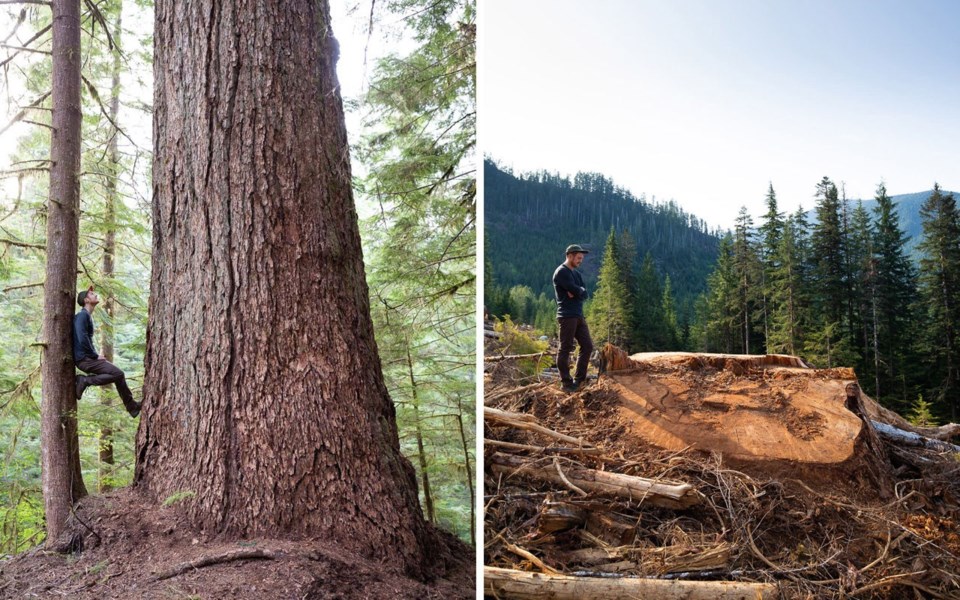Global deforestation increased by four per cent in 2022 compared to the previous year, putting the conservation goal to halt the practice by the end of the decade further out of reach.
That’s according to the , an annual report now published by over two dozen groups that track global commitments to end and reverse deforestation and forest degradation by 2030.
Regional targets for deforestation — which includes situations where forests are permanently converted to another use — were missed in all tropical regions, where 97 per cent of forest loss occurs. But this year, the report expanded its scope outside tropical regions, targeting countries like Canada for failing to prevent large-scale “forest degradation.”
“This is one of the first times Canada has received this kind of scrutiny,” said Jennifer Skene, a policy manager at the Natural Resources Defense Council and one of the report’s authors.
“It’s painting a very strong picture that things are not happening sustainability in the Canadian boreal and the rest of the country’s forest.”
Skene said Canada has “escaped scrutiny” for the impacts industrial-scale logging and fossil fuel extraction has had on forests for a long time. The latest round shows “Canada is sort of reaching the end of its rope in continuing business as usual,” she said.
Global forests are home to nearly 70,000 vertebrate species and 80 per cent of terrestrial plants and animals. Scientists agree their integrity is crucial for tackling a global biodiversity crisis, which by one estimate has led to a nearly . In Canada, one-fifth of all counted species were recently found to be at . Globally, we're losing species faster than at any time since the dinosaurs went extinct roughly 66 million years ago.
The report comes two years after the signing of the Glasgow Leaders’ Declaration on Forests and Land Use, where leaders pledged to end the loss and degradation of natural forests by 2030, while restoring 350 million hectares of degraded landscapes and forest lands.
Some progress had been made on deforestation in 2021. But last year not only failed to make up that lost ground, but also saw more tree loss. Global gross deforestation reached 6.6 million hectares in 2022. That's 21 per cent higher than what's needed to eliminate deforestation by 2030.
Meanwhile, forest degradation was found to be occurring in half of the planet’s regions, often in the northern forests of North America, Europe and Asia, the report found.
“While global attention has focused predominantly on tropical deforestation, Canada ranks third globally — even excluding wildfires — for loss of intact forest landscapes,” the report said in a spotlight on the country.
It notes that Canada’s government claims near-zero deforestation because clear-cuts are expected to grow back instead of being permanently converted to another use of the land.
In Canada, logging companies are required to replant trees after a forest is cut. The “sustained yield” model, as it’s known, has long framed Canadian forestry as an endlessly renewable resource. But that logic has been increasingly questioned in recent years as many species that rely on the forest are pushed closer to extinction.
The assessment chided Canada for carrying out industrial logging in primary and old-growth forests, especially in areas where endangered species, like boreal caribou, already have insufficient habitat to survive.
Logging in Canada, concluded the assessment, is "not sustainable" and is "exacerbating climate change-related risks, such as drought and fire.”
Meanwhile, the authors also pointed to an audit released earlier this year from Jerry DeMarco, Canada’s Commissioner on Environment and Sustainable Development, which found the federal government failed to report emissions from the logging sector in its national carbon inventory (the audit also found Canada won't get even a tenth of the two billion trees it promised to plant in the ground over 10 years).
On the international stage, Canada was further singled out for moving to create a domestic definition of "forest degradation" while lobbying U.S. states and the European Union when they moved to that would limit the import of wood products linked to deforestation and forest degradation.
“Countries like Brazil, Togo, China, the United States, and Chile have recently taken action to expand or strengthen protected areas, though countries such as India and Canada are seeking to remove protections for large areas of forest.”
In the absence of a coordinate government approach tracking global forest loss and degradation, Skene said the assessment attempts to fill the gap as best it can.
“We’re advocating for governments to take this accountability themselves,” she said.
Glacier Media reached out to Natural Resources and Global Affairs Canada, but neither responded by the time of publication.





